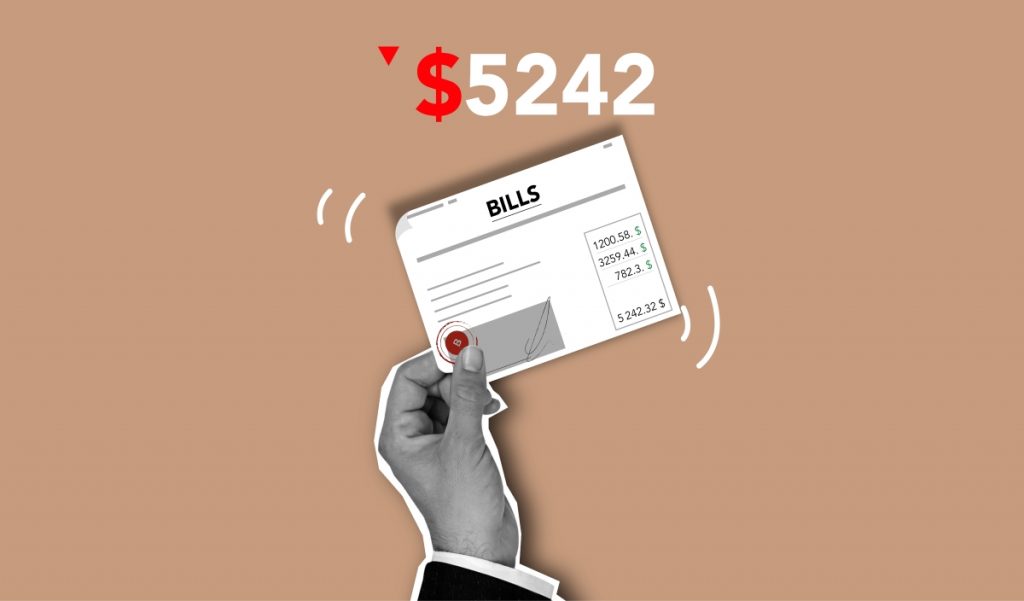- Elon Musk, Investor & Entrepreneur
There is no greater enemy to profit margins than unpaid customer bills. Don’t be tempted to write off unpaid invoices as losses. With some careful planning, many unpaid bills can be avoided. Don’t live in the mindset that outstanding invoices are impossible to collect (otherwise they will be!).
Avoid overdue payments
There are many steps you can take to avoid overdue payments. When you form a new relationship with a client, avoid being overly accommodating. Landing a sale is irrelevant if the client can’t pay. Ensure your business practices are optimised to avoid missed payments.

1. Define all terms before a sale
Leave no room for renegotiation or disputes. Make sure your client fully understands the total cost of services rendered before any work begins. Any budget issues should be discussed at this time. Depending on your business model and the industry, it may be wise to enter into a legally binding agreement at this stage.
2. Collect payments upfront
The simplest way to avoid missed or overdue payments is to bill in full upfront. This isn’t always feasible for large and costly goods or services, but, wherever it’s practical, make the customer pay in full before the work begins. This eliminates fraud and wasted time.
3. Invoice immediately
Send out invoices as soon as possible after services are rendered. Don’t let any time lapse between the purchase and the client receiving their itemised bill. Any number of circumstances could arise if you hesitate. Make sure your clients see your bill as soon as it’s been sent through (ask for a return email).
4. Give no grace to unpaid invoices
Not only should you invoice right away, but you should be quick to follow up. Send a reminder every 24 hours after your invoice is sent. Don’t let your unpaid bill go unnoticed or ignored. Put policies in place that ensure your unpaid invoice stays at the forefront of your client’s mind.
5. Charge late or cancellation fees
Clients are more likely to follow through when it’s their money on the line. Set up a clearly defined late fee policy and communicate it to your clients. Fees may be regulated by your industry or local government. Consult with proper legal counsel when defining these terms.
6. Offer installment plans
Frequent unpaid invoices and overdue bills may be a sign that your product is outside of your core customer’s budget. Rather than lower the price on your valuable services, offer installment plans instead. Charge your clients a deposit for work to begin then agree on terms to pay off the balance. This can increase the flow of money into your company significantly.

How to respond when a customer refuses to pay
Customers will come up with a variety of reasons not to pay (people have never been so creative), so it’s important to have policies and procedures in place to address some of the more common excuses. If you can anticipate payment issues before they escalate, you might be able to collect on more debts moving forward. Be prepared for the following scenarios:
- Customers may claim that they’ve “lost your invoice”. In this case, follow up with the client immediately. Email a copy before you even get off the phone and ask for payment to be remitted immediately when you send a follow-up invoice.
- If a client tries to dispute the quality of work to avoid paying, go back to your initial agreement. Having a signed contract in place that defines the standards expected protects you. Address all client concerns before following up with a copy of your terms and invoice.
- For on-going services, define a deadline for when customers will be cut-off. Have a clear policy on when payment is due and how long clients have to pay to continue receiving your services.
Don’t be overly polite in an attempt to salvage a working relationship. It’s bad practice to nurture relationships with clients who don’t respect your business as subsequent sales are likely to result in similar payment issues. Save your time and energy for clients who are happy to pay for your services.

Hire a professional
Debt collection is a booming industry, and there are plenty of professionals out there who know how to get your money. If you need to bring in outside help, weigh the cost of hiring professionals with the benefit of collecting on your unpaid debts. There will be several options available based on your needs so consider which is best for your situation.
Collection agencies
If your company has a large volume of debt that’s more than 90 days past due, you may want to consider a debt collection agency. There are many reputable agencies to hire and these professionals know every tactic to get customers to pay their debts. Debt collection can be very effective.
Factoring services
If you need the cash and don’t expect your customer to pay right away, you can always contact a factoring agency. With these organisations, you’ll sell your debt for a percentage of its value. Expect to get around 70%. The factoring service will collect a fee for following up with your customer and collecting their debt.
Legal options
Find a lawyer
Hiring a lawyer may help you collect on unpaid bills. Many times a strongly worded letter from an attorney is all it takes to spur a client to pay their debt. If hearing from your lawyer doesn’t do the trick, you may need to take legal action. A lawyer is well trained in cost/benefit analysis; they’ll let you know if it’s worth it to sue.
Litigation
You may not require an attorney to take legal action. Small claims court exists for fairly quick and relatively inexpensive lawsuits. Make sure you meet state requirements before filing a petition. Preparing a small claims case takes time, but it could be worth it for a large enough debt.

Rhymney
Latest articles
Stay up to date
Want to know anything else?
We’re an open book so hit us up if we’ve missed anything here or if there’s something else you’d like to know.
Thought leaders & celebrities share their tactics for success on the Lisnic podcast by Lisa Teh & Nick Bell
